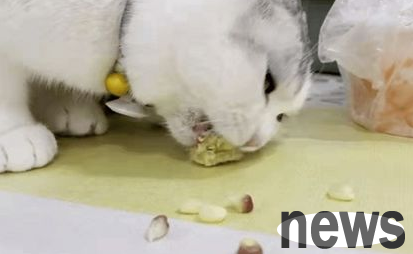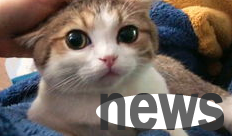Cats are one of the most popular pets in many families, with elegant body shape and unique character that makes people fall in love with them. However, cats' gastrointestinal system is relatively fragile and intolerant to many human foods, so owners need to pay special attention to their diet and living habits.

In daily life, we may encounter some unexpected situations, such as cats eating foreign objects that they should not eat or vomiting food, so what should we do? Some cats are very "scam" and like to try various human foods, and corn is something they often are interested in.
Because cats are not herbivores, eating plants like corn cannot provide the nutrients they need, and may even cause gastrointestinal discomfort, leading to symptoms such as nausea, vomiting, diarrhea, etc.
If your cat unfortunately eats corn and then vomits out, the first thing to do is to clean up the vomit.
When cleaning up vomit, pay special attention to protecting one's body and health.
Vomites may contain harmful substances such as bacteria and viruses, so you should wear gloves and masks to avoid contact and breathing of these harmful substances.
Remove the vomit with a tissue or a well-absorbent cloth, and then thoroughly clean it with laundry detergent or disinfectant to ensure that harmful substances are killed.
Next, you need to observe the cat's condition to see if it has other symptoms, such as loss of appetite, fatigue, diarrhea, etc.
If the cat loses appetite, it can temporarily stop feeding and let it rest for a while first, and then gradually return to normal diet after its body recovers.
If the symptoms are serious, it is recommended to take the cat to the veterinary for treatment.
In order to avoid similar situations in the future, we need to pay attention to the diet and living habits of cats.
First, you should not feed cats human food at will, especially spicy, greasy, raw and cold foods. These foods can easily cause gastrointestinal discomfort in cats and even poisoning.

Secondly, we must maintain our dietary hygiene, try to use special tableware, clean regularly, and avoid bacterial infection.
Finally, it is necessary to facilitate cat excretion, keep the environment clean and hygienic, and avoid infection with germs.
In short, it is not a big deal to vomit when a cat eats corn, so don't worry or be nervous.
As long as you take timely measures to remove vomit, observe symptoms, and pay attention to diet and living habits, you can avoid gastrointestinal discomfort and other unexpected situations in cats.
At the same time, owners should also develop the good habit of taking their cats to the veterinary office for physical examinations regularly to ensure the health and happiness of the cats.